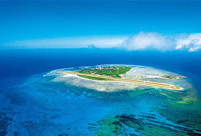

An arbitration panel has been established by the International Court of Arbitration at the unilateral request of the Philippines to settle disputes in the South China Sea. However, attempts by the panel to expand and abuse their own power triggered concern from the international community.
The panel has not only neglected basic facts, it has also violated international laws including the United Nations Convention on the Law of the Sea (UNCLOS). By meddling in affairs beyond its jurisdiction, the panel is endangering the peace and stability of the South China Sea region. Such malicious intent is the very opposite of justice.
Some voices in the international community are now trying to justify the panel by comparing it to organizations such as the International Court of Justice and the U.N. But, in fact, the arbitration panel is nothing more than a temporary team established in response to an allegation by the Philippines.
What’s more, four of the five arbitrators are European. They do not represent global, diverse perspectives, nor do they offer the outlook of different legal systems. Four of them were appointed by Shunji Yanai, a biased Japanese former president of the International Tribunal for the Law of the Sea.
During the hearing, the panel not only rejected China's historical practice in the South China Sea, they also deliberately neglected China's legal interests. Therefore, it’s clear that neutrality is not a priority for the temporary group. Instead, what the panel has pursued since its establishment is the expansion of power. It is well known that South China Sea disputes boil down to disagreements over territory and maritime demarcations.
However, territory issues are beyond the purview of UNCLOS, and the Chinese government made a statement of optional exception on issues related to maritime demarcation in 2006 under Article 298 of UNCLOS. As a temporary organization established on the basis of UNCLOS, the arbitration panel has absolutely no jurisdiction over the case. To settle disputes through international judicature such as arbitration is to resort to a third-party settlement method, which was long ago ruled out by both China and the Philippines.
Articles 280 and 281 of UNCLOS entitle the contracting states to independently choose a path to settle disputes. The panel has turned a blind eye to these facts. In order to break with the settlement procedures described by UNCLOS and establish their own jurisdiction, the panel willfully denied the previous consensus reached by China and the Philippines. In doing so, it has violated China's right to independently choose a means of settling disputes as a sovereign state and a contracting state of UNCLOS.
Moreover, during the arbitration process, the panel clearly abused its power. Neglecting China's claim over all the Nansha Islands, they separated what they deemed the Chinese Nansha islands and reefs from all the rest. At the same time, they said nothing about the islands and reefs illegally claimed by the Philippines, calling the issue one of legal position rather than sovereignty. In this way, they denied China's maritime interests in the region.
Some international judicial bodies abuse power for sake of their own interests, but the most common motive is to simply declare one’s presence. In the case of the South China Sea arbitration panel, the motive was a kind of political provocation that went beyond just showing muscle.
China will never accept the results of the arbitration no matter what the panel decides. As a founder, vindicator and constructor of the international law that is now being violated, China has always opposed actions that provoke or intensify existing conflicts.
The misguided views of other countries will never shake China's determination to safeguard its sovereignty and territories, and to protect regional and international peace and stability through the proper application of international law.
The article is edited and translated from 仲裁庭扩权滥权严重损害国际法治 Source: People's Daily
 Beijing Style: ready for bare legs
Beijing Style: ready for bare legs Century-old station sees railyway evolution
Century-old station sees railyway evolution Amazing scenery of Xisha Islands
Amazing scenery of Xisha Islands Enthusiasts perform Kung Fu at Wudang Mountain
Enthusiasts perform Kung Fu at Wudang Mountain Stunning photos of China's fighter jets in drill
Stunning photos of China's fighter jets in drill Monk's mummified body to be made into a gold Buddha statue
Monk's mummified body to be made into a gold Buddha statue Asia's longest and highest suspension bridge to open to traffic
Asia's longest and highest suspension bridge to open to traffic China's first interactive robot looks like a beauty
China's first interactive robot looks like a beauty Vietnamese Su-30 fighters fly over Nanwei Island in South China Sea
Vietnamese Su-30 fighters fly over Nanwei Island in South China Sea Top 20 hottest women in the world in 2014
Top 20 hottest women in the world in 2014 Top 10 hardest languages to learn
Top 10 hardest languages to learn 10 Chinese female stars with most beautiful faces
10 Chinese female stars with most beautiful faces China’s Top 10 Unique Bridges, Highways and Roads
China’s Top 10 Unique Bridges, Highways and Roads Caution urged in overseas M&A deals
Caution urged in overseas M&A deals Activist’s cyber hunt violates moral codes
Activist’s cyber hunt violates moral codes China's radical leftists call for vocal critics of the Party to be jailed for treason
China's radical leftists call for vocal critics of the Party to be jailed for treason Step aside Twiggy – more and more Chinese people are embracing a healthy body image
Step aside Twiggy – more and more Chinese people are embracing a healthy body imageDay|Week